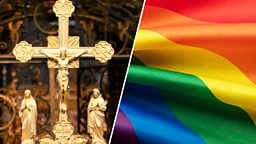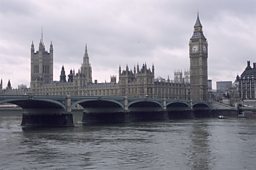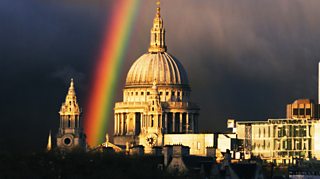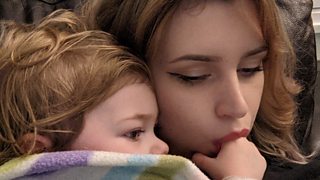The reality of conversion therapy
Conversion therapy is the practice of attempting to change an individual’s sexuality. Widely seen as an abhorrent and harmful process, it is responsible for great deal of suffering in the LGBT+ community.
In this article, Caitlin Benedict, presenter of Faith, Lies and Conversion Therapy, hears from survivors of conversion therapy and examines recent moves to ban these practices.
The shadow of change and suppression
In the UK today, there are still organisations and people who will offer you therapy, prayer and treatments to change – or “fix” – your sexuality and gender identity.
7% of LGBTQ+ people in the UK have been exposed to conversion practices.
All major political parties in the UK have said they would want to ban conversion therapy. And for good reason. As a trans, queer person myself, the shadow of change and suppression practices has loomed over my sense of identity and my community. And it continues to do so. The best information about this comes from a UK government survey in 2018. It revealed that 7% of LGBTQ+ people in the UK have been exposed to conversion practices. That goes up to 13% for trans people.

An abhorrent history
I went to the doctor and I told him I wanted to be taken out of circulation, I was no good for this world.Stanley Underhill
These practices have a long and abhorrent history. Stanley Underhill, the author of Coming Out in the Black Country, is in his nineties now. He came out as gay in his eighties. Before that, he suffered through an exorcism and a subsequent breakdown, during which he admitted himself to a psychiatric institution. “I went to the doctor and I told him I wanted to be taken out of circulation, I was no good for this world”, he said to me.
In hospital he had electro-current therapy and a course of testosterone injections to “redirect [his] sexual energies”. But that just made him more alive to his desires, he told me. He planned a suicide, but didn’t go through with it.
Conversion therapy now
Decades later, conversion practices may look different but the toll they take on a human being is sadly familiar. Justin Beck was part of a Pentecostal church in Glasgow for five years. “The line that I was given all the time was ‘you just have to have faith’...” Justin tells me, before detailing the ways in which his church escalated from “praying the gay away” during Sunday services to full-blown exorcisms over a period of six years: “I genuinely believed I was evil”. In his thirties now, Justin refers to himself as a survivor, and campaigns for a ban in Scotland.
When you look at Stanley and Justin’s experiences, you can see the way that conversion practices have shifted shape. Once available on the NHS and considered best practice by medical doctors, the baton was taken up by psychoanalysts who called it “reparative therapy”. And whilst that kind of practice still exists, it’s increasingly rare and not certified by any psychotherapeutic bodies. Religious organisations are conversion therapy’s current home.
Faith and community
I went to an Anglican Church-associated school, which became increasingly conservative in the years I was there. It was the seat of the archbishop who led a conservative breakaway sect when the Church of England moved to accept gay bishops and same-sex unions. I was in the cathedral’s choir, singing services every week. I swung back and forth in my own faith, repulsed every time I ventured into the world of that church that made no secret of despising me for my queerness. It wasn’t until years later that I felt the sense of loss, not just of faith but of community.
The people I’ve spoken to who’ve gone through religious conversion practices feared that loss of community so acutely that they went some way to destroying themselves in the process.

How do you stop conversion therapy?
Fighting conversion therapy is complicated. How do you legislate against it? In a recent parliamentary debate on conversion therapy, equalities minister Kemi Badenoch didn’t use the word ban. She spoke about “ending” conversion therapy, and said that the government wouldn’t seek to stop religious organisations from providing counselling to people “exploring their sexuality”. Jayne Ozanne, a Christian Evangelical leader who has just quit the government’s LGBT+ advisory panel over a perceived “hostile” environment for LGBT+ people, says that including religious practices in the ban is vital. Although the Church of England (along with many other major religious organisations) has disavowed conversion practices, Jayne says it “doesn't want to get into this thorny issue of what one would call freedom of religious belief versus LGBT rights”.

The model ban
It’s increasingly unclear what a ban might look like, and when or even if it will be passed.
Nathan Despott, a campaigner from the state of Victoria in Australia, lays out how religious freedom is supported by their recently passed ban, which he says is the most comprehensive in the world: “it needs to also have caused injury or serious injury, according to our Victorian Crimes Act. And that can include psychological injury, but it needs to be proven beyond reasonable doubt… we're pretty confident that most people that have been through conversion practices would be able to do that. And we're also confident that if a person has been exposed to a lot of ideology, but they haven't been injured or harmed, that they would not be able to prove it. And so there's a good balance there in terms of religious freedom.” The ban on change and suppression practices in Victoria extends further to a ban on the advertising of these practices, and includes protections for those who put themselves through the practices.
Conservative MP for Rutland and Melton, Alicia Kearns, included a ban on conversion therapy as part of the campaign which saw her elected to parliament in 2019. She believes that Victoria’s ban is a strong model for what should be passed in the UK. But after the government’s debate, it’s increasingly unclear what that ban might look like, and when or even if it will be passed.
To hear more from Caitlin about the fight to ban conversion therapy, listen to the documentary Faith, Lies and Conversion Therapy.
Βι¶ΉΤΌΕΔ Action Line: If you need support with issues relating to sexuality, help and support is available here.
More from Seriously...
-
![]()
Faith, Lies and Conversion Therapy
Will banning conversion therapy end the practice of trying to change people's sexuality?
-
![]()
Sensory overload: My life as an autistic mother
For autistic people, sound and touch can cause sensory overload. What if you're pregnant?
-
![]()
Will live music ever be the same again?
The pandemic and music.
-
![]()
Playing video games with the dead
The amazing ways that gamers have dealt with losing a loved one.




